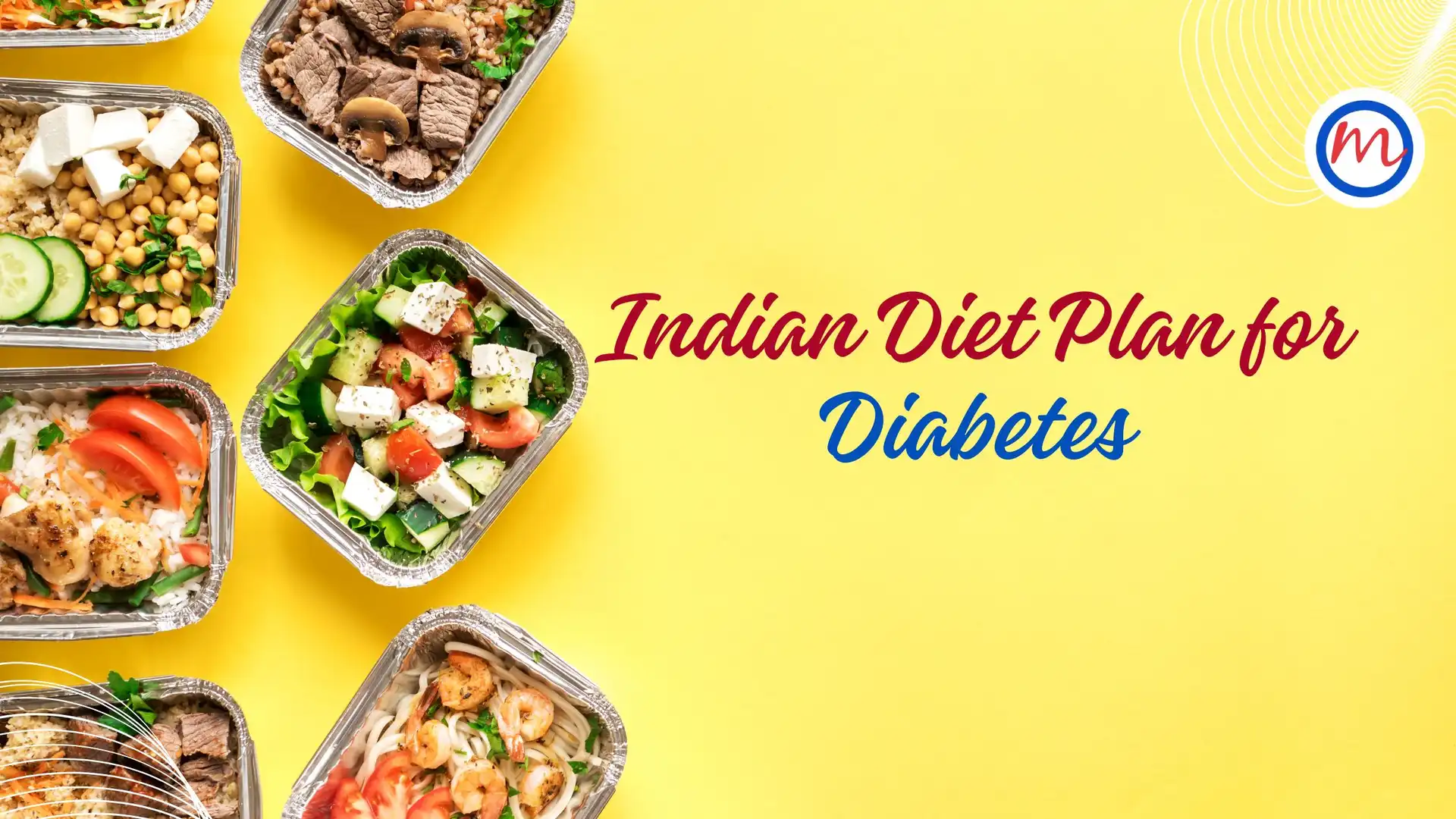Monsoon Meal Plan for People with Diabetes: What to Eat and Avoid
The monsoon season brings cooler weather, the aroma of fresh earth, and often cravings for warm, comforting foods. However, for individuals with diabetes, this season also poses unique challenges. Increased humidity and dampness can contribute to a higher risk of infections and unstable blood sugar levels. A monsoon-specific diet that focuses on balanced nutrition, immunity boosting and digestion-friendly foods can make a significant difference in managing diabetes effectively during this time.
In this article, we present a practical monsoon meal plan designed specifically for people with diabetes, along with important tips on foods to include and avoid to stay healthy throughout the rainy season.
Why You Need a Monsoon-Specific Diet for Diabetes
The monsoon season affects the body’s metabolism and immune system in several ways. Higher humidity slows down digestion and can promote the growth of harmful bacteria and fungi. This makes people with diabetes more vulnerable to infections like urinary tract infections, fungal skin infections and gastrointestinal disturbances. Furthermore, cravings for fried and spicy foods increase during monsoon, which can cause blood sugar spikes.
Lower levels of physical activity due to rainy weather further contribute to blood sugar instability. Therefore, adopting a diet tailored to the monsoon season can help:
- Improve digestion and nutrient absorption
- Boost immunity against infections common during the rains
- Maintain steady blood sugar levels despite weather challenges
- Reduce the risk of monsoon-related complications in diabetes
For more on strengthening immunity during the monsoon, see our detailed guide on Immunity-Boosting Foods for People with Diabetes.
Monsoon Meal Plan for People with Diabetes: What to Eat and Avoid
People with diabetes must be aware of what to eat and avoid in a meal during monsoon:
- High-Fibre Vegetables
Vegetables rich in dietary fibre help slow down sugar absorption and promote digestive health. Include monsoon-friendly vegetables such as bitter gourd (karela), bottle gourd (sorakkai), ridge gourd (peerkangai) and ladies’ finger. These can be steamed or lightly sautéed with minimal oil to retain nutrients without adding unhealthy fats.
Explore our comprehensive list of Diabetes-Friendly Summer Vegetables, which overlap well with monsoon choices.- https://www.drmohansdiabetes.com/diabetes-friendly-summer-vegetables/
- Low-Glycaemic Index Grains
Choose grains that have a low glycaemic index to help control post-meal blood sugar spikes. Options like ragi (finger millet), oats, whole wheat and brown rice are excellent staples. Avoid refined flour (maida) based snacks and foods, as they tend to increase blood sugar rapidly. - Protein-Rich Foods
Adequate protein intake is crucial for satiety and blood sugar management. Incorporate plant proteins such as moong dal, masoor dal and sprouts, as well as animal proteins like paneer and eggs. These provide essential amino acids and help maintain muscle mass. - Warm Soups and Stews
Monsoon is an ideal time for warm, easily digestible foods. Vegetable soups enhanced with garlic, pepper and turmeric have anti-inflammatory and immune-boosting properties. Light khichdi made with vegetables and spices like turmeric supports digestion and immunity without overloading calories. - Immunity-Boosting Spices
Spices like turmeric, black pepper, cumin, garlic and ginger are natural anti-inflammatory agents and aid digestion. Using these regularly in meals can support your immune system during the monsoon. - Probiotics for Gut Health
Probiotics help maintain healthy gut flora, which is essential for good immunity and blood sugar control. Fresh curd or buttermilk in moderation can be included in your meal plan to improve digestion and gut health.
For ideas on breakfast options that complement your monsoon diet, check out https://www.drmohansdiabetes.com/best-breakfast-options-diabetes/
Foods to Avoid During Monsoon for Diabetes
- Fried and Street Foods
Monsoon cravings often push people towards fried snacks like pakoras, samosas and chaats. These not only increase blood sugar rapidly but may also be prepared in contaminated oil or unhygienic conditions, raising the risk of infections. - Cut Fruits Sold Outside
Buying pre-cut fruits from street vendors is risky due to bacterial contamination, which can cause stomach infections. It is better to consume whole fruits washed properly at home. - Unboiled Water and Raw Salads
Monsoon is notorious for waterborne infections. Avoid drinking unboiled or untreated water and steer clear of raw salads and unpasteurised dairy products from unreliable sources. - Overripe or Juicy Fruits
Fruits like mangoes, jackfruit and sapota (chikoo) tend to be sweeter and have a higher glycaemic load. These should be consumed only in strict moderation after consulting with your healthcare provider.
If you want detailed guidance on fruit consumption, read https://www.drmohansdiabetes.com/can-people-with-diabetes-eat-mangoes/
Sample One-Day Monsoon Meal Plan for People with Diabetes
| Meal | What to Eat |
| Early Morning | Warm water with soaked methi (fenugreek) seeds |
| Breakfast | Oats vegetable porridge + 1 boiled egg |
| Mid-Morning Snack | Amla juice or a handful of soaked almonds |
| Lunch | 1 bowl brown rice + moong dal/ chicken + steamed ridge gourd + buttermilk |
| Evening Snack | Roasted chana or herbal tea with a small portion of sprouts |
| Dinner | 2 whole wheat chapatis + sautéed bitter gourd + paneer bhurji/ chicken curry- 100g |
| Bedtime (if needed) | Haldi (turmeric) milk with no sugar or 1 small fruit under guidance |
For personalised diet planning, consider booking a consultation with our dietitians: Book a Diet Consultation.
Rain or shine, your diet plays a vital role in diabetes management. Don’t let monsoon cravings or seasonal challenges derail your blood sugar control. At Dr. Mohan’s Diabetes Specialities Centre, our experienced dietitians provide tailored meal plans, nutritional counselling and ongoing support to help you stay healthy throughout the year.
- Schedule a visit with our expert dietitians today: Schedule an Appointment
- Find your nearest Dr. Mohan’s Diabetes Centre: Find a Centre Near You
- Explore more health guides and recipes on our Diabetes Blog



